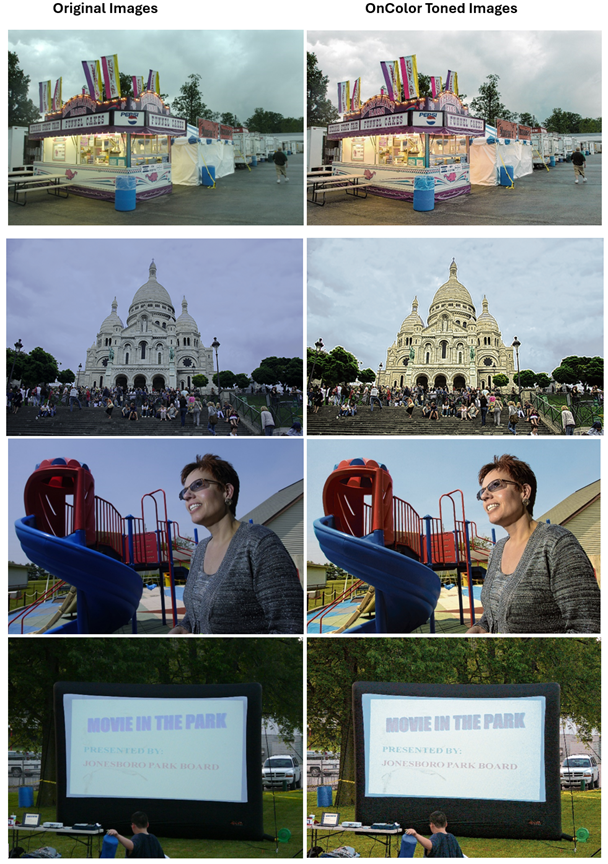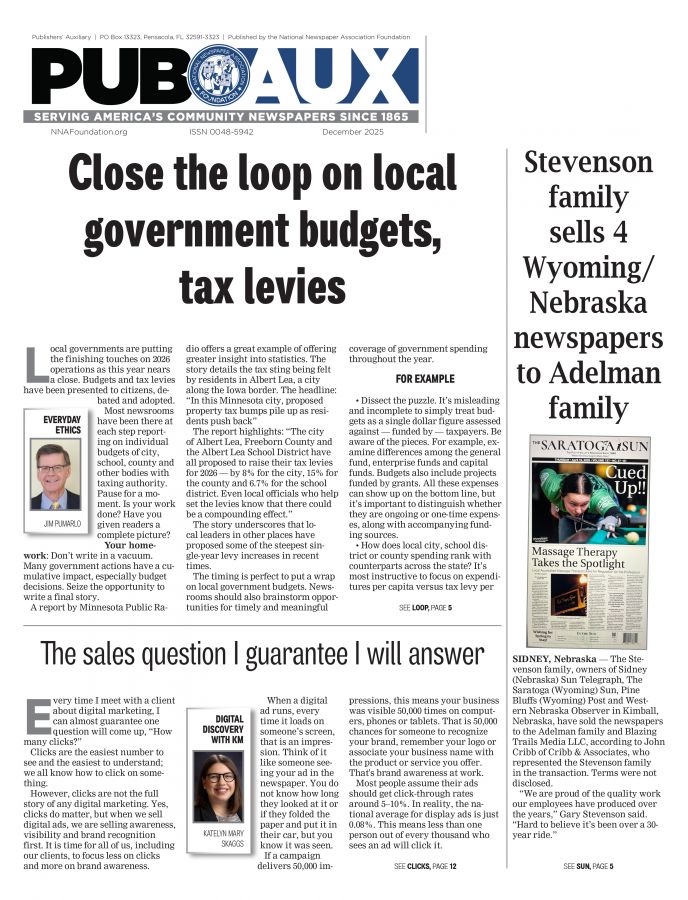Forever, Wherever, Whenever: How technology has changed obituaries
Feb 1, 2024
TRACIE MARTIN
Legacy.com
In 1998, a little office opened in Chicago with one goal: to bring print obituaries online.
Twenty-five years, several tech bubbles and one pandemic later, Legacy.com has grown from 12 employees and a ping–pong table into a coast-to-coast team that provides digital end-of-life services to millions worldwide. To commemorate this milestone, Legacy’s staff reflected on how obituaries and memorialization have changed over the last 25 years. Here’s what they had to say.
1.) TECHNOLOGY HAS MADE OBITUARIES MORE PERSONAL
Once upon a time, most obituaries were a routine affair: a templated list of survivors and a few quick biographical facts. Today, they’re much more likely to offer unique, memorable stories — living testaments with the power to touch strangers thousands of miles away.
“Now more than ever, people are motivated to really capture the essence of their loved ones in obituaries,” Danielle Zimmerman, director of marketing at Legacy, said. “Creative, personal notices are no longer few and far between.”
Historians (https://bit.ly/42f0WW2) and Legacy team members point to Legacy’s work with The New York Times (https://bit.ly/48JXRQf) after 9/11 as an inflection point for obituaries:
The standard obituary style remained fairly unchanged throughout the second half of the 20th century, but then things took a shift after the Sept. 11 terrorist attacks in 2001, obituary expert Susan Soper told NPR (https://bit.ly/3Sb5lEJ) in 2018. In the months following the attacks, The New York Times published short narrative obituaries on each of the nearly 3,000 people killed that day.
“They were fabulous,” Soper said. “Everybody was recognized as a whole person. And they had fun anecdotes; they made you cry; they made you smile. And to me, that was sort of when the tide turned in obituaries and people realized that you could bring a person to life and keep them alive in even a short-written bio.” [Dave Roos: How Obituaries Went From Dry Death Notices to Tributes to Truth (https://bit.ly/42f0WW2)]
Many longtime Legacy employees note the rise of social media as another reason for this move towards personalization.
“People want their loved ones remembered,” John Heald, a licensed funeral director who has led Legacy’s funeral home initiatives for the last 10 years, said. “For today’s generation, this means crafting an obituary creative enough to get shared online.”
This trend toward more intimate and permanently accessible obituaries over the past two decades has had a remarkable effect: It has far more broadly showcased the beautiful lives of people who might never have made headlines but who were deeply loved for who they were.
“I’ve read a lot of obituaries over my time at Legacy,” Paul Barnum, one of the web developers who has maintained Legacy’s vast network of online obituary pages for the past seven years, said. “So many of the lives I’ve seen were so FULL, and these people weren’t celebrities. They were just human beings going about their days. You don’t have to be in the top 1% of anything to make a difference in peoples’ lives.”
The sort of personal details that families are now including in obituaries can have surprising resonance for the people reading.
“A few years ago, I worked on an obituary where the first line of text was that he’d passed doing what he loved: tending to his watermelon fields,” reflected support team member Greg Vyska. “That’s not something you see every day.”
This kind of storytelling isn’t only memorable — it has also helped bring much-needed attention to some difficult social issues. “I’ve seen so much growth in honest obituaries over the last decade,” Danielle Zimmerman said. “From acknowledging people’s struggles with mental health and addiction to describing the horrors they witnessed in concentration camps: today, obituaries aren’t afraid to ‘go there.’”
These unapologetic obituaries can have a powerful impact on the living.
“I can’t tell you how often I’ve read comments from strangers on a guest book, just random people who are touched by someone else’s life struggle,” content screener Judy Sloan said. “Sharing these stories of people who have thrived in the face of adversity or after experiencing something horrific, like the Auschwitz death camps, helps people to realize that they, too, can overcome their own suffering and go on to live full and meaningful lives.”
2.) GUEST BOOKS HELP KEEP OUR MEMORIES ALIVE FOREVER
Even beyond the impact of the written obituary is the profound power of the online guest book that accompanies it.
As Stopher Bartol, Legacy’s founder, puts it: “Before Legacy, no one had access to guest books after the funeral. It was a print book that sat on a shelf for years. But an online guest book can be bookmarked and accessed forever, wherever, and whenever someone wants to.”
This convenience created a whole new type of written memorial to the deceased, one that serves as a permanent touchpoint to a lost loved one. Stories of these memorable guest books abound from Legacy’s content review team:
“My favorite regular is someone who posts photos of different meals she enjoyed with her foodie husband. I think she cooks them just to tell him about it.” Regina Rivera
“I know a widow who posts daily on both her husband’s and son’s guest books, just to tell them the weather and current events. Nothing dramatic, but it speaks to me.” Judy Sloan
“The one that gets me is the person who just writes ‘I love you and remember you.’ Simple words, but they post this almost every day.” Sue Lisowski
This ‘keep-in-touch’ relationship with their lost loved one, which can go on for decades, is often cited by readers as a key service they depend on each day.
“We had a customer who would call in every day to correct the guest book entry he wrote to his wife the night before,” Christine Layshock, who’s served on the support team for 18 years, said. “He couldn’t rest until it was perfect. He sent our team gifts nearly every holiday as a thank you, right until he died.”
3.) ONLINE OBITUARIES GIVE US AN INTIMATE VIEW OF HISTORY
Several longtime Legacy employees shared memories of how online obituaries and guest books changed the way society grieves and understands national tragedies.
“I’ll never forget 9/11. Never. We worked around the clock for months, but we got a guest book online for every single person who died that day and in the wars after. I helped a nation mourn: I’ll take that privilege with me for the rest of my life.” –Linnea Crowther, news editor
“Rosa Parks died shortly after I started. I was a screener at the time, and I will never forget how our small team remained glued to their desks for weeks to manually screen thousands upon thousands of entries. It was a testament to the great impact our guest books have, and I’m honored by my small role in preserving her legacy.” –Christine Layshock, principal Sspport and solutions specialist
“In the very early days of the pandemic, we tried to write obituaries for every COVID victim. We had spreadsheets that grew by the minute. One day, I finished an obituary for ‘Mary Mack,’ 85, then moved on to John Mack, 89. Then Chris Mack, 52 … Rose Mack, 28 … I stopped typing. Every member of a family died just days apart. That’s when I knew what we were truly facing.” –Tracie Martin, marketing
4.) “THEY WERE HERE. THEY MATTERED.”
Everyone at Legacy is still in awe of the power of online memorialization to impact others.
“Posting good guest book entries is like spreading seeds of comfort in a world that desperately needs more kindness,” offers Lynmarie D’Amore, Legacy’s director of operations. “You never know who is going to get a lift exactly when they need it.”
Danielle Zimmerman, who founded and manages Legacy’s online grief groups, shared this story:
“Back in 2019, I discovered that two people met and fell in love on the digital walls of our Loss of a Spouse group. They’ve been married for about four years now, and I think there’s been at least one other marriage from that group since. It’s amazing to me, that the simple fact of creating a safe, comforting online space allowed two people from opposite sides of the country to meet, be vulnerable and fall in love in the wake of paralyzing grief.”
More lives remembered. More people connected. The positive impacts from the obituary’s evolution are clear. And as the digital-first generation becomes the increasingly dominant force on the internet, the need to keep innovating drives Legacy’s development team.
“When I founded Legacy, I wanted the company to be the place where life stories live on,” says Stopher Bartol. “We plan to spend the next 25 years continuing to deliver on that promise.”










